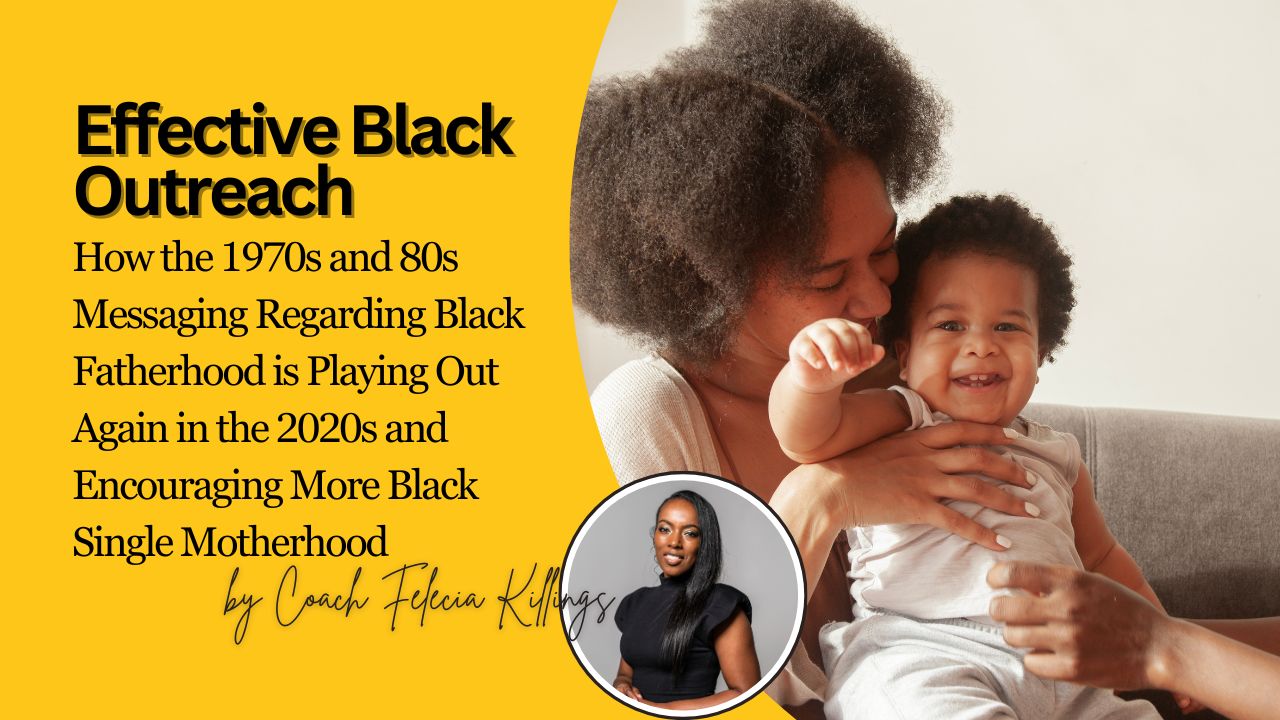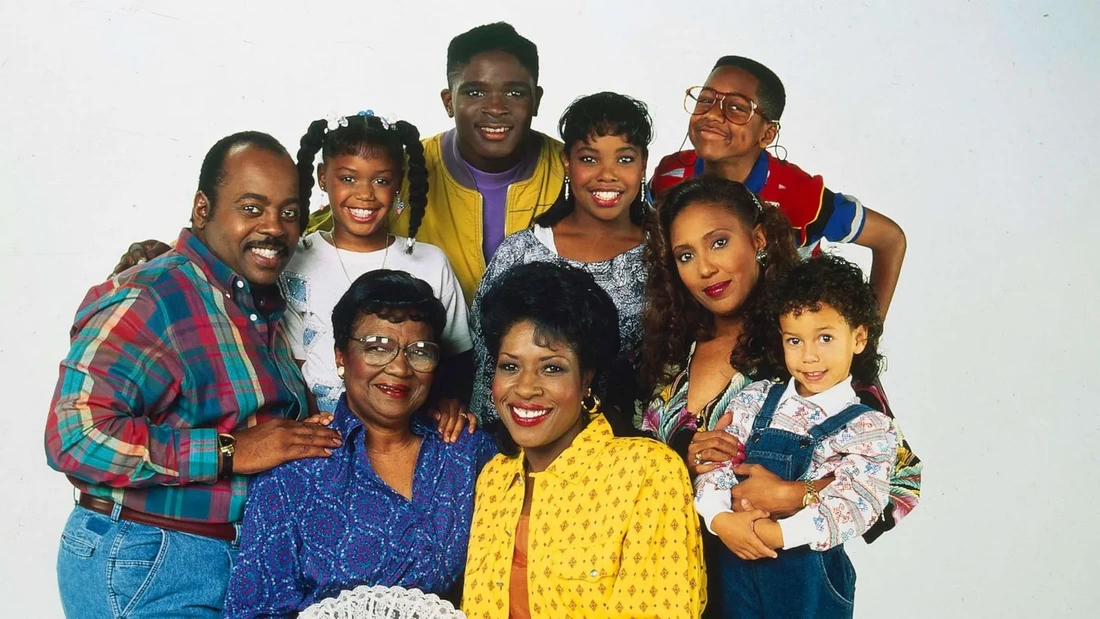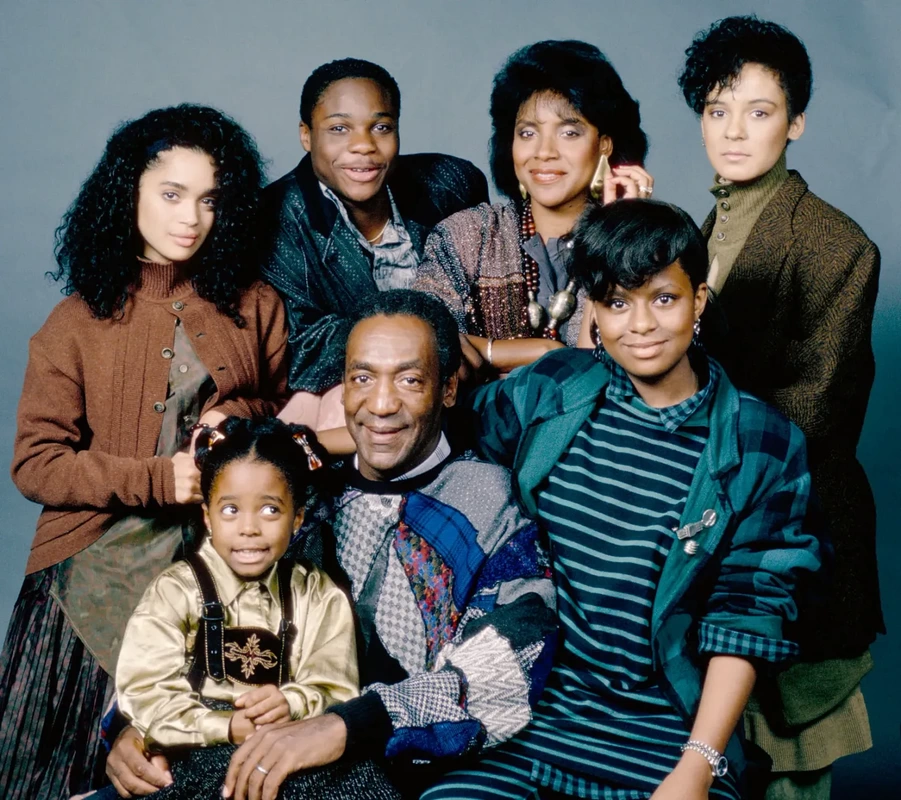Greetings Beloved,I’d like to begin this lesson with a story about my paternal grandmother, Earnestine Killings. I never met her because she passed away before I was born, but Dad often shared wonderful stories about her. He told me that growing up, our elders had specific rules when it came to sex and pregnancy. Simply put, if one of her sons got a girl pregnant, that son MUST marry the girl. No exceptions. Perhaps you’re familiar with these types of “shot gun” weddings, too. But it’s interesting to note how social norms morphed over time as our communities became more aligned with Progressive messaging and policy. By the 1960s, American Culture was changing. Within Black America, for example, we read about the rise of the last Civil Rights Movement. While Black Americans were fighting for basic human rights and policies that protected them under the law, White America was experiencing its own revolution. During this time, a more modern Feminist Movement emerged. White women began challenging the traditional, familial, and sexual roles “assigned” to them. In addition, many embraced “sexual empowerment,” which gave single women the “freedom” to express themselves as they so desired. At the core of the sexual revolution was the concept -- radical at the time -- that women, just like men, enjoyed sex and had sexual needs. Feminists asserted that single women had the same sexual desires and should have the same sexual freedoms as everyone else in society. For feminists, the sexual revolution was about female sexual empowerment. For social conservatives, the sexual revolution was an invitation for promiscuity and an attack on the very foundation of American society — the family. Feminists and social conservatives quickly clashed over morality of the "sexual revolution," and the Pill was drawn into the debate. (Source) The cultural shift from the strong, nuclear family to a more “liberal” structure soon found its way in Black America. By the 1970s, nearly 30% of Black infants were born to single mothers compared to only 3% of White mothers. By 1990, 64% of Black infants were born to single Black mothers compared to 18% of White women (Source). Newer data show the trend has not ceased: “During the 1960-2016 period, the percentage of children living with only their mother nearly tripled from 8 to 23 percent and the percentage of children living with only their father increased from 1 to 4 percent” (Source). When we consider Black History, many of today’s Black relationship experts point to a startling analysis: During Jim Crow segregation, we had more in-tact families. Marriage was valued. Having a husband and father in the home was crucial. And Black women embraced it. What could have changed the mindset within our Black communities that led to such a breakdown in our social structure? Researchers during the 1970s and 80s took a hard look. The Vanishing Black Family (1986) This past week, I came across a documentary hosted by CBS News called “The Vanishing Black Family.” This 90-minute presentation provided one of the most comprehensive analysis of the Black social structure (or lack thereof) during the 1980s. The film included both quantitative and qualitative data that illustrated the reasons why so many young Black men and women embraced single parenting in some of the poorest Black communities. I will admit: Watching this documentary was difficult for me. Many of these young Black girls became pregnant as early as 12-years-old. The young Black men had no jobs and hardly an education. Yet sexual discipline and the desire for a strong family were not their priority. One of the most striking points within the documentary came from a Black psychologist who noted, if the problems in these Black areas were not addressed, these issues would metastasize into suburban areas in the near future. Conservatives today should understand this point clearly because Sonnie Johnson has reiterated it extensively. What this documentary fails to address, however, is the role Progressivism played in creating these hostile environments. Keeping the people in poverty and “financially rewarding” them for remaining there stifled the community’s creativity. Restrictions from participating in the capitalist economy (via systemic racism) caused young Black males to seek capital in other ways (i.e. manufacturing and selling drugs). For a lot of young males, rap or Hip Hop was their escape. The lyrics reflected the hell they lived and the ongoing frustrations of not knowing how to escape it successfully. Couple this with the new wave of anti-Black male messaging, which suggested Black men were non-essential to the family unit, you will find a people group born into war zones, simply striving to survive. How Black Entertainment Pushed the Envelop to Restore the Traditional Black Family Image Back in college, I majored in Black American Studies. One course required us to examine the role television and movies played in Black America, and how imagining shaped culture to become what we now read in history. During the 1980s, two prominent Black shows aired every week that depicted the strong, Black nuclear family: Family Matters and The Cosby Show. I remember watching both shows with my parents and loving the story lines. The love. The comedy. The family support. The strange arguments that only lasted a short while. The children’s mischief and the parents’ responses. All of it. I loved every minute of these shows, mostly because it reflected my own experiences. You see, I was raised in a Black Conservative, Christian household. I had both parents growing up. We lived in the suburbs of northern California. We had a beautiful life. In essence, we were like the Cosbys and the Winslows. Conservative values were our bedrock. Back then, I knew nothing of the destructive plight happening within the larger segment of Black America. Dad took great care to guard my sister and I from embracing any mindsets that suggested Black men weren’t important to the family. In addition, he stressed the importance of marriage while also teaching us how to fend for ourselves, especially financially, so we never feared leaving a volatile relationship if we ever entered one. (Dad’s training in this area proved most important to me during my late 20s.) We were sheltered. And I am grateful for this. I apply the same structure to my daughter. I am meticulous about her surroundings. I invest in her spiritual, mental, and physical development so she is adequately prepared for the future. And one of the primary lessons I teach her is, “Single motherhood is not the norm for us. Never embrace it as a viable option for you. Having a good husband and father in the home is most important, especially for young girls.” This is one of the reasons I purpose to remarry. But not all single Black mothers have this mindset. And unless something is done to course correct the matter, marriage will be obsolete in Black communities. Why This Black History Should Matter to White Conservatives Over the years, I’ve taught Conservatives repeatedly the importance of studying Black History. Why? Because Black History provides a detailed case study of what happens when Progressivism has full control within an ethnic group’s population. What we read about the 1970s and 80s reflects current social, political, and economic issues today. Progressivism has metastasized into suburban areas. More Conservatives are experiencing, for the first time, what it’s like to have abusive, anti-male messaging pushed on their daughters. Conservatives are watching as their schools become more focused on “gender identity” rather than intellectual processes that help communities prosper. None of this behavior, however, is new … and had Conservatives known Black History and engaged in the issues 40+ years ago, we would not be here right now. Today, Black Millennials have the fortunate blessing of using Black History to inform our practices now. We’ve witnessed what happens when Progressive policies attack our rising wealth. We know what happens when less traditional values bombard our younger minds. We see what happens when government becomes both the “savior” and the oppressor in our communities. And many of us have said, “That’s enough.” Leaders like Nicole Pinkston, who recently launched Iconic Media, are tackling the social sphere by creating books and articles that encourage strong, healthy marriages. For those of us who align ourselves with conservatism and the Republican Party, we are committed to selling these empowering ideas to Black communities that need it. Unless a competing message is present, voters will continue selecting policies that essentially work against their best interests. The welfare system, no matter how noble its intentions may have been presented, created a society that would not tap into its creative genius. It fostered a lackadaisical spirit among the poorest of America’s citizenry. Progressivism did NOT solve poverty. It expanded it. Progressivism is NOT charity. It is long-term oppression. And it made women believe a man’s place in the home was non-essential. The Felecia Killings Foundation aims to be a competing voice in this wider sphere. By working with single Black mothers, we will teach them how to develop new economic opportunities that get them off of government “assistance.” Over time, as our all-girls group homeschool program emerges, we will work with these daughters to prepare them for an empowering, holistic life experience, including learning how to become wives. We are serious about course correcting the errors of our ancestors. We don’t want to see another 50 years go by without doing something on our part. And then we want to show current and future generations why conservative politics is the better option to protect what they build. This is our direction moving forward. And Conservatives must engage in the process as well so they can know how best to confront Progressivism via the Alliance with conservative Black Americans. This is the way. Let’s walk in it. I guarantee, if we continue doing things God’s way, we will witness His results. Until next time, Beloved, be blessed. And as always, let’s grow together!
0 Comments
Your comment will be posted after it is approved.
Leave a Reply. |
Author
Purchase Coach Felecia's Best-Selling Ebooks |
The Felecia Killings Foundation: Transforming Ordinary People into Extraordinary Leaders and Helping Them Manifest Their Visions in the Social, Political, and Economic Spheres
Contact Us Today
Donate to The Felecia Killings Foundation
The Felecia Killings Foundation is a Conscious Conservative think tank and leadership organization. Through our research, publications, and outreach, we teach rising leaders how to activate their thought leadership in the social, political, and economic spheres.
The Conscious Conservative Movement is a branch of our organization, which helps bridge the gap between conservative politics and Black voters. Through our national work, we teach Black Americans how to access the Republican apparatus while also selling principled-based Conservative candidates who will serve on their behalf at the local, state, and federal level.
Donations to The Felecia Killings Foundation and The Conscious Conservative Movement help sponsor our research, publications, and online community workshops.
Each year, our research team engages in evangelistic efforts to develop qualitative articles based on the needs of diverse Black voters. Our research focuses on school choice, homeschooling, marriage, family, entrepreneurship, faith, and effective communication strategies for conservative evangelism.
We compile our findings in annual publications (The Conscious Conservative Collection) that help inform Conservative Leaders on how best to make political inroads with Black voters.
Our publications then serve as marketing tools that help our CCM Leaders deliver FREE online community workshops that teach Black voters how to access conservative politics that protect what they build.
The Felecia Killings Foundation, in compliance with regulations, functions as a for-profit organization that allows us the freedom to fulfill our God-given vision and mission. A significant portion of all profits covers salaries, research, publication fees, travel, online and offline outreach, and more. As a token of our appreciation for your financial support, you will receive new rewards as a Beloved Giver.
The Conscious Conservative Movement is a branch of our organization, which helps bridge the gap between conservative politics and Black voters. Through our national work, we teach Black Americans how to access the Republican apparatus while also selling principled-based Conservative candidates who will serve on their behalf at the local, state, and federal level.
Donations to The Felecia Killings Foundation and The Conscious Conservative Movement help sponsor our research, publications, and online community workshops.
Each year, our research team engages in evangelistic efforts to develop qualitative articles based on the needs of diverse Black voters. Our research focuses on school choice, homeschooling, marriage, family, entrepreneurship, faith, and effective communication strategies for conservative evangelism.
We compile our findings in annual publications (The Conscious Conservative Collection) that help inform Conservative Leaders on how best to make political inroads with Black voters.
Our publications then serve as marketing tools that help our CCM Leaders deliver FREE online community workshops that teach Black voters how to access conservative politics that protect what they build.
The Felecia Killings Foundation, in compliance with regulations, functions as a for-profit organization that allows us the freedom to fulfill our God-given vision and mission. A significant portion of all profits covers salaries, research, publication fees, travel, online and offline outreach, and more. As a token of our appreciation for your financial support, you will receive new rewards as a Beloved Giver.
Copyright © The Felecia Killings Foundation and The Conscious Conservative Movement 2019-2024.
All rights reserved. No part of this website, network, or blog may be reproduced, distributed, or transmitted in any form or by any means, including photocopying, recording, or other electronic or mechanical methods, without the prior written permission of the publisher, except in the case of brief quotations embodied in critical reviews and certain other noncommercial uses permitted by copyright law.
All rights reserved. No part of this website, network, or blog may be reproduced, distributed, or transmitted in any form or by any means, including photocopying, recording, or other electronic or mechanical methods, without the prior written permission of the publisher, except in the case of brief quotations embodied in critical reviews and certain other noncommercial uses permitted by copyright law.




